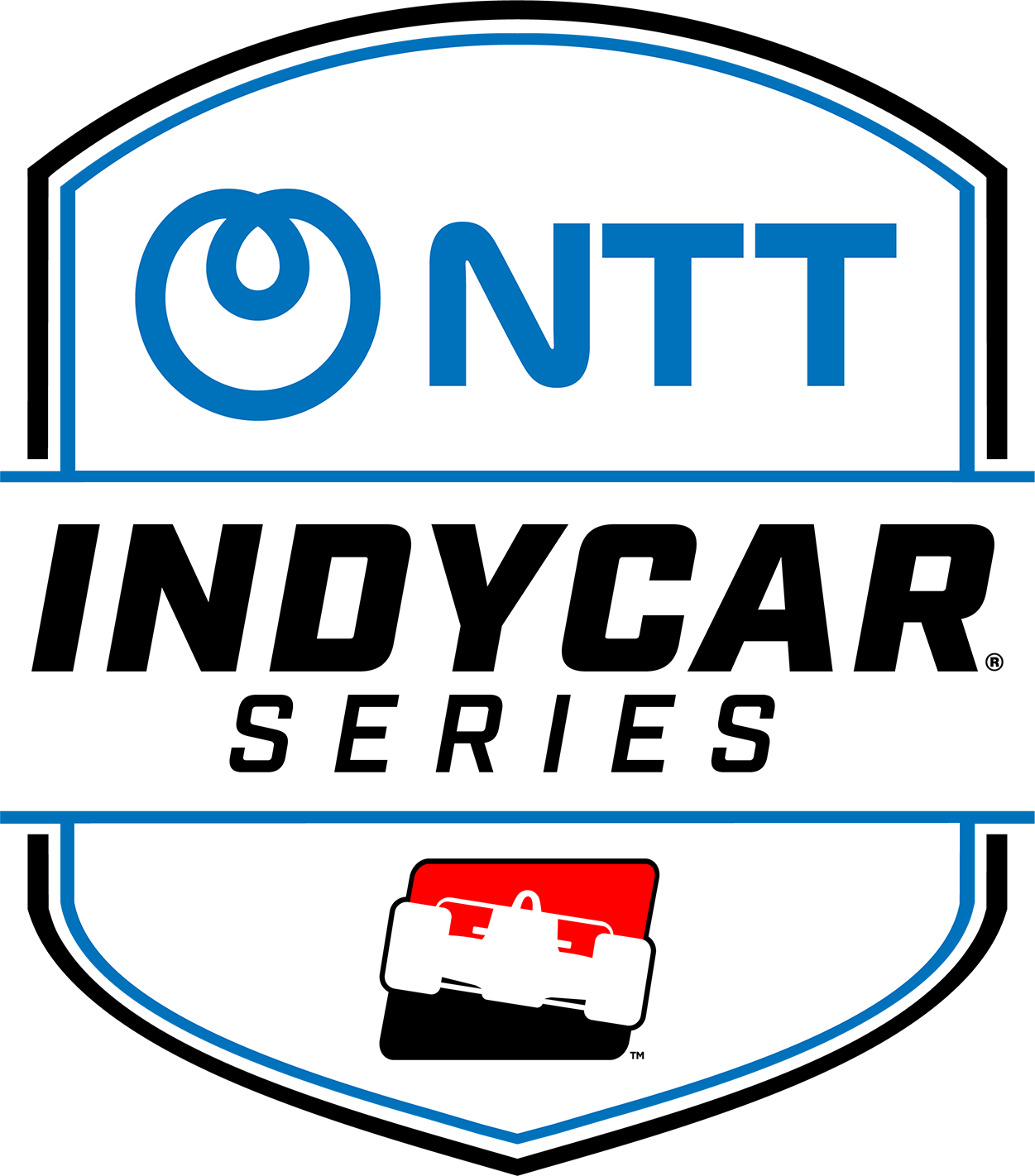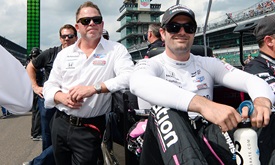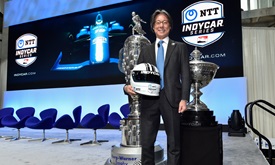No smokescreen needed to see NTT's value to INDYCAR
JAN 22, 2019
Back in the 1970s and ‘80s, sportswriters covering NASCAR races could leave the track with free cigarettes, courtesy of R.J. Reynolds and its title sponsorship. If you were a smoker and you followed the series regularly, you rarely paid for smokes. Consider it an early form of sponsor activation. However twisted and coughy, it worked.
My, how times have changed.
Title sponsorships aren’t what they used to be. They aren’t as much an exchange of cash – or a giveaway of known carcinogens – as they are about an exchange of ideas. Instead of paying a sanctioning body multiple millions of dollars to park a corporate name and logo in the title of a motorsports series, modern companies seek title sponsorships as a partnership and platform to show off their brand. Sounds like marketing speak, but it makes sense. Instead of just giving away product, show people how it works within the framework of the sport.
That’s what happened with NTT. Based in Tokyo, Nippon Telegraph and Telephone Corporation is the holding company of NTT DATA, the primary sponsor on Chip Ganassi Racing’s No. 10 car. NTT is a massive operation that does more than $100 billion in IT and telecommunications business each year. It has produced unusual and innovative solutions – did you know NTT digitized all documents and books in the Vatican and made them available online? – and is 55th on the Fortune Global 100.
But most of all, NTT fits the role of motorsports title sponsor perfectly.
“NTT is going to bring all this technology services expertise, and they're going to help turbocharge our sport,” Chevrolet’s Jim Campbell said when the NTT sponsorship of the IndyCar Series was unveiled last week during the North American International Auto Show in Detroit. “They have ties in the auto industry, and so to make this announcement here in Detroit where we have the North American International Auto Show, I think is quite appropriate. Whether it's working on AV (autonomous vehicles) or electrification or the way we use data to make all that happen, I think it's an appropriate place to do that.”
To further gauge enthusiasm for NTT, check with drivers who have worn the logo. In Tony Kanaan’s case, it was an NTT-designed shirt he wore in 2017 that monitored his vitals during races and transmitted them in real time to his car’s telemetry. It had fibers infused with conductive polymers that measured his grip strength, his ECG and breathing.
“That's just the technology they can bring to the series,” Kanaan said. “The shirt was something that was amazing when we launched that it could actually read my heartbeat and my heart rate while I was in the car. A company that spends $4 billion in R&D a year, I think it has a lot to bring to the series. You know, it's a lot of familiar faces. I have good friends at NTT, so I'm really excited for INDYCAR. It shows how strong the series is.”
And this from Ed Jones, who drove the NTT DATA car last year:
Fantastic to have #NTT as the title sponsor of @IndyCar . A lot of amazing people involved there and looking forward to working with them again this year @NTTDATAServices https://t.co/j1dzQdP2Ic
— Ed Jones (@Edjonesracing) January 16, 2019
And this from Scott Dixon, who once carried the NTT banner to victory at Elkhart Lake:
“We've had a great partnership with NTT for many years,” Scott Dixon said. “I was lucky enough to win a race for them in 2017 at Road America. With how the two companies are going to work together, I think it's going to be fantastic for branding, pushing it. We have the greatest racing in the world, and we're going to be able to push it together. But it's the perfect marriage.”
Title sponsorships are different now. They’re daring and innovative. They combine technology and products that relate to the sport, that are intertwined in unusual and creative ways. They are smart and curious. They aren’t just about unhealthy freebies. They’re truly partnerships.
We aren’t in the ‘70s and ‘80s anymore. That’s a good thing.



















